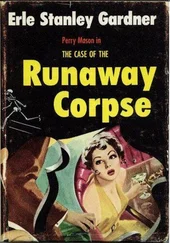John - The Runaway Jury
Здесь есть возможность читать онлайн «John - The Runaway Jury» весь текст электронной книги совершенно бесплатно (целиком полную версию без сокращений). В некоторых случаях можно слушать аудио, скачать через торрент в формате fb2 и присутствует краткое содержание. Жанр: Детектив, на английском языке. Описание произведения, (предисловие) а так же отзывы посетителей доступны на портале библиотеки ЛибКат.
- Название:The Runaway Jury
- Автор:
- Жанр:
- Год:неизвестен
- ISBN:нет данных
- Рейтинг книги:5 / 5. Голосов: 1
-
Избранное:Добавить в избранное
- Отзывы:
-
Ваша оценка:
- 100
- 1
- 2
- 3
- 4
- 5
The Runaway Jury: краткое содержание, описание и аннотация
Предлагаем к чтению аннотацию, описание, краткое содержание или предисловие (зависит от того, что написал сам автор книги «The Runaway Jury»). Если вы не нашли необходимую информацию о книге — напишите в комментариях, мы постараемся отыскать её.
The Runaway Jury — читать онлайн бесплатно полную книгу (весь текст) целиком
Ниже представлен текст книги, разбитый по страницам. Система сохранения места последней прочитанной страницы, позволяет с удобством читать онлайн бесплатно книгу «The Runaway Jury», без необходимости каждый раз заново искать на чём Вы остановились. Поставьте закладку, и сможете в любой момент перейти на страницу, на которой закончили чтение.
Интервал:
Закладка:
IF MARLEE'S PRESENT seemed under control, her past was rapidly catching up with her. An operative digging for Fitch at the University of Missouri found a collection of old admissions manuals in the main library. In 1986, a Dr. Evelyn Y. Brant was listed and briefly described as a professor of medieval studies, but she was absent from the 1987 handbook.
He immediately called an associate who was checking through tax rolls at the Boone County Courthouse. The associate went straight to the clerk's office and within minutes found the Wills and Estates register. Evelyn Y. Brant's will had been received for probate in April of 1987. A clerk helped him find the file.
It was pay dirt. Mrs. Brant had died on March 2, 1987, in Columbia, at the age of fifty-six. She left no husband and one child, Gabrielle, age twenty-one, who inherited everything under a will Dr. Brant signed three months before her death.
The file was an inch thick, and the agent scanned it with great speed. The inventory consisted of a house valued at $180,000 with a mortgage of half that, a car, an unimpressive list of furniture and furnishings, a certificate of deposit at a local bank in the amount of $32,000, and a stock and bond portfolio valued at $202,000. There were only two creditors' claims filed; evidently Dr. Brant had known death was imminent and obtained legal advice. With the approval of Gabrielle, the house was sold, the estate was reduced to cash, and after estate taxes, legal fees, and court costs, the sum of $191,500 was placed in a trust. Gabrielle was the only beneficiary.
The estate had been handled without the slightest hint of acrimony. The lawyer appeared to be prompt and quite competent. Thirteen months after Dr. Brant's death, the estate was closed.
He flipped through again, making notes. Two pages stuck together, and he delicately pulled them apart. The bottom one was a half sheet with an official stamp on it.
It was the death certificate. Dr. Evelyn Y. Brant had died of lung cancer.
He stepped into the hallway and called his supervisor.
BY THE TIME the call was placed to Fitch, they knew more. A careful reading of the file by another operative, this one a former FBI agent with a law degree, revealed a series of donations to such groups as the American Lung Association, the Coalition for a Smoke Free World, the Tobacco Task Force, the Clean Air Campaign, and a half-dozen other antismoking causes. One of the creditors' claims was a bill for almost twenty thousand dollars for her last hospital stay. Her husband, the late Dr. Peter Brant, was listed on an old insurance policy. A quick search of the register listed the opening of his estate in 1981. His file was located on the other side of the clerk's office. He died in June of 1981 at the age of fifty-two, leaving his beloved wife and cherished daughter, Gabrielle, then age fifteen. He died at home, according to his death certificate, which was signed by the same doctor who'd signed Evelyn Brant's. An oncologist.
Peter Brant had also succumbed to the ravages of lung cancer.
Swanson made the call, but only after being repeatedly assured that the facts were correct.
FITCH TOOK THE CALL in his office, alone, with the door locked, and he took it calmly because he was too shocked to react. He was seated at his desk with his jacket off, tie undone, shoes unlaced. He said little.
Both of Marlee's parents had died of lung cancer.
He actually scribbled this on a yellow pad, then drew a circle around it, with lines branching off, as if he could flow-chart this news, break it down, analyze it; somehow he could make it fit with her promise to deliver a verdict.
“Are you there, Rankin?” Swanson asked after a long silence.
“Yeah,” Fitch said, then continued saying nothing for a while. The flow chart grew but went nowhere.
“Where's the girl?” Swanson asked. He was standing in the cold outside the county courthouse in Columbia with an impossibly small phone pressed to his jaw.
“Don't know. We'll have to find her.” He said this with no conviction whatsoever, and Swanson knew the girl was gone.
Another long pause.
“What shall I do?” Swanson asked.
“Get back here, I guess,” Fitch said, then abruptly hung up. The numbers on his digital clock were blurred, and Fitch closed his eyes. He massaged his pounding temples, pressed his goatee hard against his chin, contemplated an eruption with the desk flying against the wall and phones ripped from sockets, but thought the better of it. A cool head was needed.
Short of burning the courthouse or tossing grenades at the jury room, there was nothing he could do to stop the deliberations. They were in there, the last twelve, with deputies by the door. Perhaps if their work was slow, and if they had to retire for another night in sequestration, then perhaps Fitch could pull a rabbit from his hat and spark a mistrial.
A bomb threat was a possibility. The jurors would be evacuated, sequestered some more, led away to some hidden place so they could continue.
The flow chart fizzled and he made lists of possibilities-outrageous acts, all of which would be dangerous, illegal, and destined for failure.
The clock was ticking.
The chosen twelve-eleven disciples and their master.
He slowly rose to his feet and took the cheap ceramic lamp with both hands. It was a lamp Konrad had earlier wanted to remove because it sat on Fitch's desk, a place of great chaos and violence.
Konrad and Pang were loitering in the hallway, waiting for instructions. They knew something had gone terribly wrong. The lamp crashed with great force against the door. Fitch screamed. The plywood walls rattled. Another object hit and splintered; maybe it was a telephone. Fitch yelled something about “the money!” and then the desk landed loudly against a wall.
They backed away, petrified and not wanting to be near the door when it opened. Bam! Bam! Bam! It sounded like a jackhammer. Fitch was punching the plywood with his fists.
“Find the girl!” he screamed in anguish. Bam! Bam!
“Find the girl!”
Forty
After a painful stretch of forced concentration, Nicholas sensed some debate was needed. He elected to go first, and briefly summarized Dr. Fricke's report on the condition of Jacob Wood's lungs. He passed around the autopsy photos, none of which attracted much attention. This was old territory and the audience was bored.
“Dr. Fricke's report says that prolonged cigarette smoking causes lung cancer,” Nicholas said dutifully, as if this might surprise someone.
“I have an idea,” Rikki Coleman said. “Let's see if we can all agree that cigarettes cause lung cancer. It'll save us a lot of time.” She'd been waiting for a crack in the door, and seemed ready to quarrel.
“Great idea,” Lonnie said. He was by far the most hyper and frustrated of the bunch.
Nicholas shrugged his approval. He was the foreman, but he still had only one vote. The jury could do what it pleased. “Fine with me,” he said. “Does everyone believe cigarettes cause lung cancer? Raise your hands.”
Twelve hands shot up, and a giant step was taken toward a verdict.
“Let's go ahead and take care of addiction,” Rikki said, looking up and down the table. “Who thinks nicotine is addictive?”
Another unanimous yes.
She savored the moment and appeared on the verge of venturing onto the thin ice of liability.
“Let's keep it unanimous, folks,” Nicholas said. “It's crucial that we walk out of here united. If we split, then we fail.”
Most of them had already heard this little pep talk. The legal reasons behind his quest for a unanimous verdict were not clear, but they believed him nonetheless.
“Now, let's finish these reports. Is someone ready?”
Читать дальшеИнтервал:
Закладка:
Похожие книги на «The Runaway Jury»
Представляем Вашему вниманию похожие книги на «The Runaway Jury» списком для выбора. Мы отобрали схожую по названию и смыслу литературу в надежде предоставить читателям больше вариантов отыскать новые, интересные, ещё непрочитанные произведения.
Обсуждение, отзывы о книге «The Runaway Jury» и просто собственные мнения читателей. Оставьте ваши комментарии, напишите, что Вы думаете о произведении, его смысле или главных героях. Укажите что конкретно понравилось, а что нет, и почему Вы так считаете.












